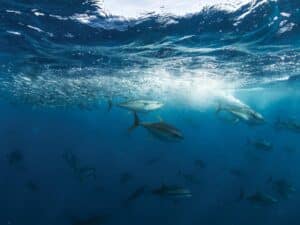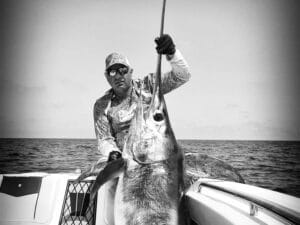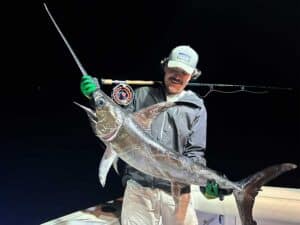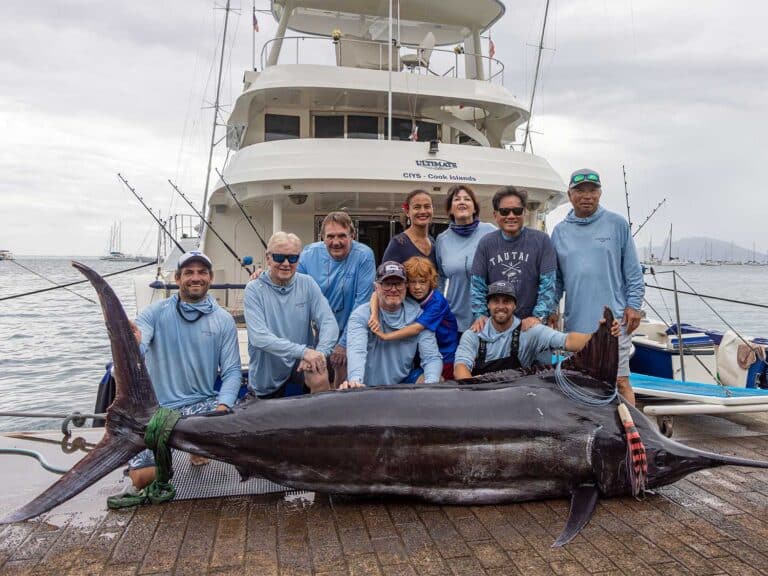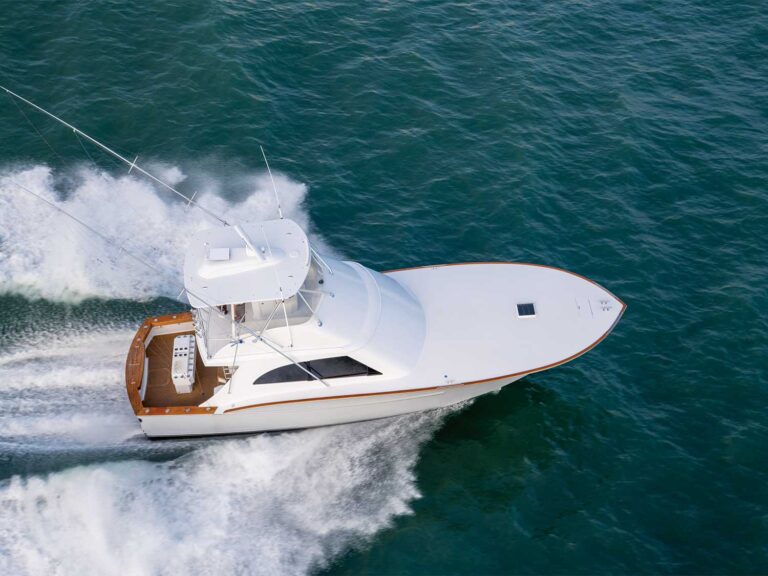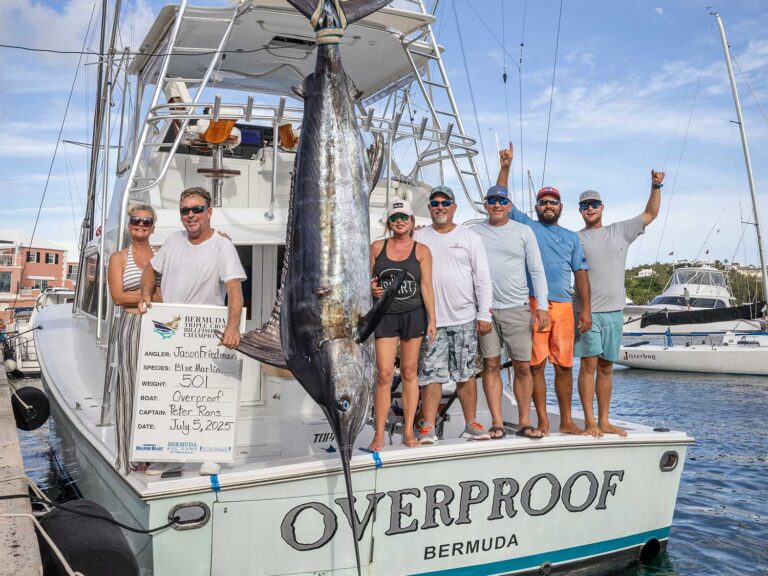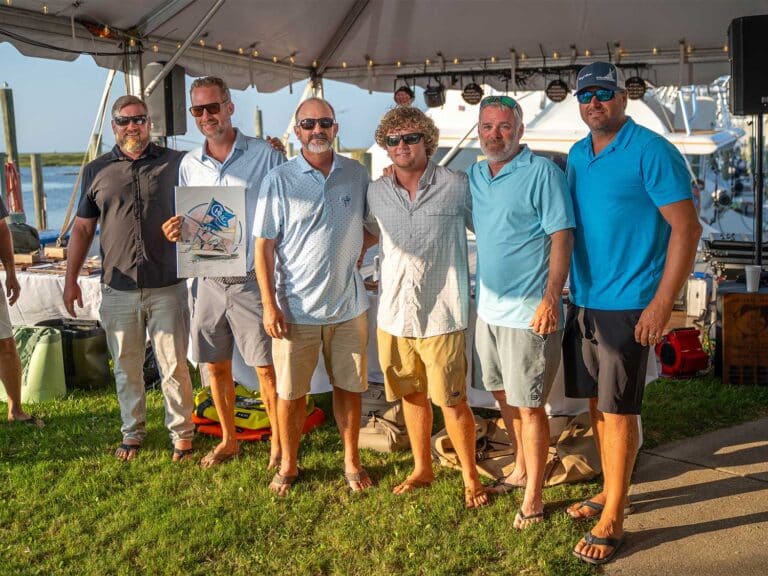
As a charter mate in the 1970s, Jim Motsko often imagined a fishing tournament that actually guaranteed prize money, unlike the local brown-bag tournaments of the day. Thanks to his hard work, dedication and the support of some close friends, the famed White Marlin Open was born in Ocean City, Maryland. And even though the first year brought its share of grumblings, the young tournament director persevered, creating what is now the richest—and most popular—billfish tournament, bringing to the local community thousands of participants, tens of thousands of spectators, over 350,000 livestream viewers, and a cash prize purse of over $6.1 million in 2019. Since 1974, Motsko has awarded over $71 million in tournament winnings; even today, the event continues to wow the world’s billfishing enthusiasts.
Q: Do you think the White Marlin Open will ever transition to an all-release tournament?
A: I consider this tournament to be an all-release tournament with high minimum weights. Originally, the event was supposed to be an all-release format; it was all about who caught the most billfish, not the heaviest. But unfortunately, the first year a rumor came out that everyone was going to cheat about their catches, so the decision was made to boat all of the marlin caught. I’ll never forget, Angus Phillips from The Washington Post put an article in the paper after the tournament with a photo that he took of the marlin “stacked like cordwood.” The Ocean City Light Tackle Club also expressed some dissatisfaction with the way the tournament was handled. I took this all very personally, and from then on, I was determined to make this a release tournament, counting only the heaviest fish. It then becomes a luck tournament; anyone can get lucky and catch a big fish.
Q: How did you get into sport fishing?
A: I was born and raised in Baltimore, and my family always vacationed in Ocean City for a week or two in the summer. When I was 12, I saw my first marlin during an offshore trip that my father chartered. After seeing that billfish cut through the spread and dance all over the ocean, I was hooked. When I graduated from high school in 1964, I started mating on Katherine and was able to pay for each semester of college at the University of Maryland. After graduation in 1968, I got a job in banking that was short-lived. By the summer of 1970, I was back mating in Ocean City. I was approached in the offseason with an opportunity to start selling real estate, which launched my lifelong career as a real estate agent.
Watch: Learn to rig a bonito strip teaser.
Q: How did the tournament grow over the years?
A: There were a few tournaments like the Ocean City Marlin Club event, but none had guaranteed prize money. Pete Boinis, who owned the Ship Cafe Marina where Harbor Island is now, was a big help the first year. He encouraged his slip holders to fish the tournament, which in turn was good for business for him, even though we ended up having to go to the bank to borrow money to pay the winners. Since then, we have grown from 57 boats in 1974 to a record high of 449, and from $20,000 to over $6.1 million in payouts. We started a small-boat division five years ago, and introduced a lady angler division last year that has been very popular.
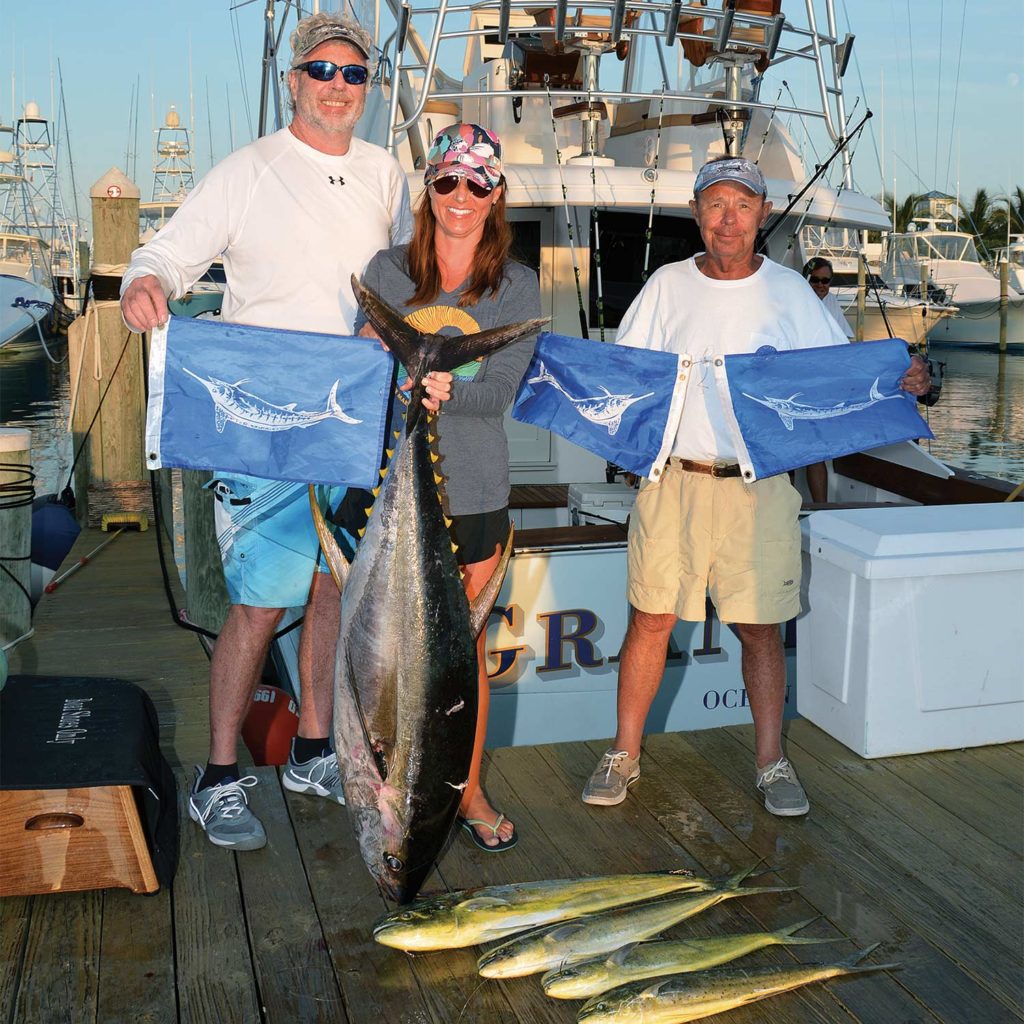
Q: What financial impact does it have on the local community?
A: The recent estimated revenue generated is around $25 million to $30 million, based on an economic impact study completed by the Maryland Department of Business and Economic Development in 2009. This study estimated $16 million in expenditures for the White Marlin Open week in August. Since that study was done, our tournament payout has nearly tripled, from $2.2 million in 2009.
Q: Does the tournament still receive negative feedback?
A: We release over 98 percent of the billfish caught, so realistically we are not killing fish just for the sake of killing fish. It’s similar to Ducks Unlimited, where the hunters are protecting the ducks—we are protecting the species through education and promotion of conservation. I have had participants say to me: “One thing I didn’t like was that there was only one blue marlin that qualified. You made it so hard for everyone else.” We have already proved we can pay out over $6 million, have the largest tournament around, and kill only two blue marlin; it doesn’t bother me anymore. Our decisions are supported by the data, and we are constantly analyzing our sizes and weights. Most recently we did a 10-year study of the weights and measurements of all the white and blue marlin caught. We found that with whites, the fish needed to be 69 inches and weigh 70 pounds to qualify, and for these fish, it’s all in the girth. With blues, our minimum qualifying length is 114 inches because our data showed that we’ve had only one fish in 15 years that didn’t reach 500 pounds, even though it measured out at 114 inches. All of our tournament fish are donated to the Maryland Food Bank, and are cleaned on-site and taken to the local food-pantry houses. This year we donated over 1,000 pounds of fresh fish.
Read Next: A history lesson of the White Marlin Open.
Q: What does the tournament’s future hold?
A: Improvement is our goal every year. We recently added big-screen televisions so that spectators could see the fish coming to the scales. This year, we had an incredible 350,000 viewers livestreaming the tournament weigh-ins from 75 different countries. Many people ask about expansion, but to be completely honest, it would be hard to add more boats because there just isn’t enough dockage. We have allowed boats to leave from other ports, but most people just want to be in Ocean City, in the middle of the action.
Q: How is your family involved?
A: My two daughters, Sasha and Madelyne, have been active in the tournament since they were kids, packing tournament bags on the living room floor, so it’s always been a group effort. Our family handles 99 percent of the tournament needs: Sasha works with the sponsors and business relations; Madelyne handles all of the tech and computer stuff, our social media, scoring, banking and accounting. Sasha also helps with the scoring, coordinates the livestream and the many event-preparation details. My cousin helps with the announcing and scoring.
Q: What is your favorite fishery and destination?
A: You just can’t beat blue marlin fishing; there is nothing like it: They’re like a bull in a china shop. Destination? Definitely Venezuela prior to its decline. I went every fall for 20 years; there was some incredible white marlin fishing.
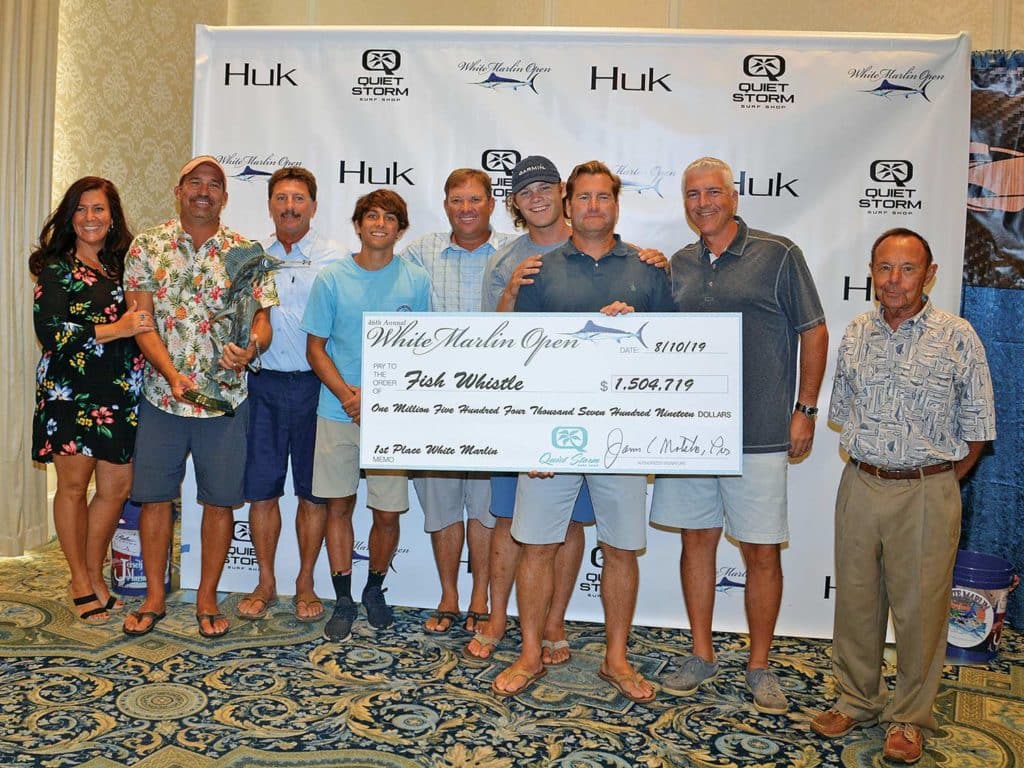
Q: Who are some of your favorite captains you have fished with?
A: I have fished with a lot of great captains. A few who come to mind are Arch Bracher, Jimmy Grant, Ronnie Fields, Anthony Mendillo Jr. and Butch Cox.
Q: What are some of your most memorable days fishing?
A: The first white marlin that I hooked myself as a mate aboard Katherine: It was a great teaser bite, and I’ll never forget it. I caught a grand slam fishing on Dream Girl, I believe, during the International Light Tackle Tournament Association’s tournament on 20-pound-test out of Oregon Inlet in 2015, tying for first place out of 69 anglers and 23 teams fishing the tournament. We landed 15 whites with Capt. Keith Greenberg, fishing aboard Seven out of Ocean City; and caught 40 sailfish out of Isla Mujeres, Mexico, one year.
Q: What are some of the success stories?
A: I love hearing the feedback, and we are regularly complimented by our participants about how well the tournament is organized and runs. There are so many great stories: mates being able to buy their first house; another guy being able to pay off his boat and the IRS; back-to-back grander blue marlin in 2009 and 2010. It was also really neat having Michael Jordan and Emeril Lagasse as competitors this year—I have their signed catch reports framed in my office. The best thing about the White Marlin Open? You don’t have to be a millionaire to become one.

